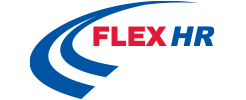Did your employees show up for work today?
HR Leaders Say The Big Game Hits This Monday

Most businesses do operate as usual the Monday after the Big Game, so those that choose to take the day off will need to use a day from their Paid Time Off (PTO) accumulation. Workers should refer to their Employee Handbook for their company’s policies and procedures. While it’s not required by law for every business to have one, it’s undoubtedly the best way to have written documentation of specific workplace rights. Companies that want to ensure their policies and procedures are up-to-date and in compliance, turn to HR experts, like Flex HR to review their current Handbook or create an entirely new one. A company Handbook ultimately safeguards your business; particularly should any legal matters arise.
54% of professionals know someone who’s called in sick or made an excuse for skipping work the day after a major sporting event. *
It will be interesting to see how the numbers of those that take the day off in 2021 will compare with previous years since so many companies still have their staff working remotely as the COVID-19 pandemic lingers. Regardless, unplanned absenteeism leads to problems for organizations. Productivity outstandingly takes the biggest hit, but there are additional challenges such as replacement costs and direct costs, and employee pay that also take a toll on the business. Surprisingly more than one-third of senior-level/executive leaders said they may not work their normal hours on Monday after the Super Bowl, compared to 20 percent of junior and mid-level employees who are more uncomfortable about the consequences of not showing up for work. Thus, managers have to pick up the work of those who have taken the day off, forcing them to become less efficient in their own day.
Some businesses are finally thinking ahead to the Monday after the Big Game, realizing this setback, and have implemented a plan of action to fill the gaps in anticipation of those employee’s that request to take Monday off, or potentially call out of work. Other organizations are rewarding those that do show up by offering their workers donuts or bagels for breakfast that morning or even catering a pizza lunch in to encourage a lighter environment the next day.
*Source: OfficeTeam online survey of more than 1,000 U.S. workers employed in office environments and more than 2,800 senior managers at organizations with 20 or more employees in 28 major U.S. cities.
Learn more about the of HR Team Experts that can help.
Our Flex HR specialists serve thousands of different organizations, in countless industries, varying from a few to over 75,000 employees.
To Learn More about Flex HR Contact Us.
